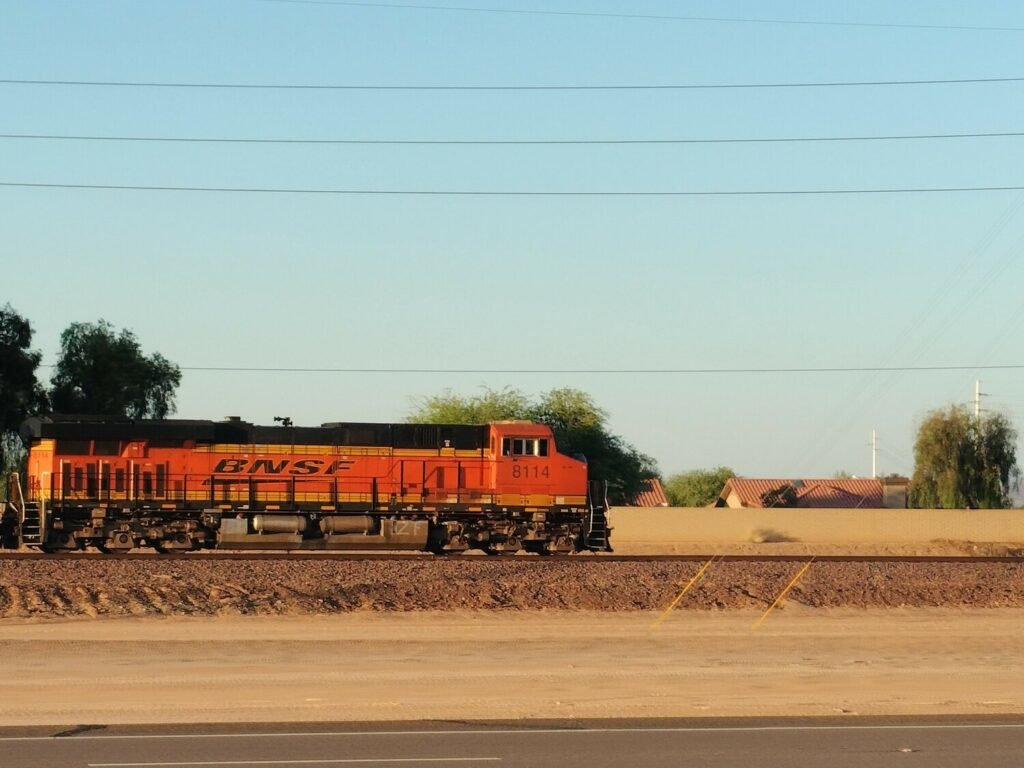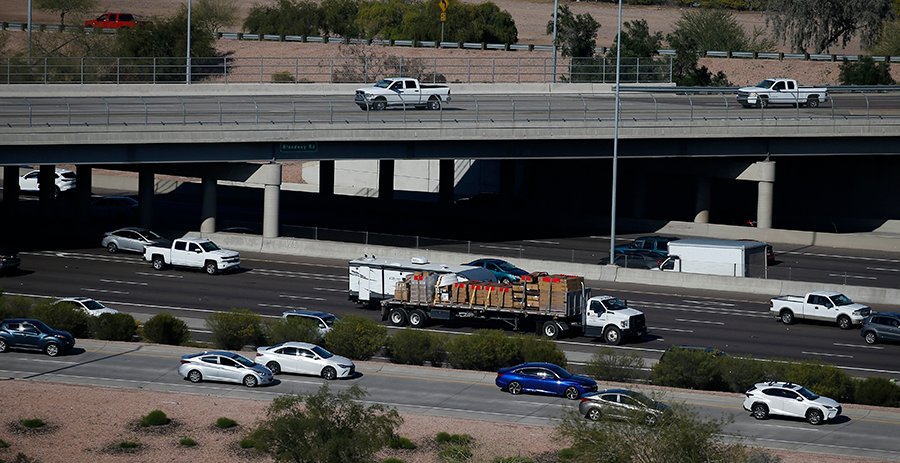Community Concerns Over BNSF Development
Advocates are raising alarms as construction on a $3.2 billion project in the Northwest Valley is set to start later this year. They are highlighting potential negative effects on the community, particularly regarding increased truck traffic.
BNSF Railroad officials, however, are countering claims they deem as misinformation. Lena Kent, the public relations director for BNSF, mentioned that concerns about trucks affecting local residents don’t align with reality. She points out that these trucks aren’t actually directed to nearby homes or schools, despite what some believe.
This concern was echoed in a letter from Aspasia Angelou, the principal of Nadabourg’s Unified School District, urging local decision-makers to reconsider plans for an intermodal facility near Nadabourg Elementary School. Angelou is particularly worried about the exposure of children to hazardous emissions.
Community activist Bad Meador, alongside Lisa Everett, the precinct chair in Legislative District 29, shares similar apprehensions. They’re not against BNSF’s facilities, but they suggest evaluating alternative locations that wouldn’t impact residential areas, citing worries about pollution and safety.
“People come to Whitman to escape the chaos of city life,” Everett noted, stating that the BNSF project feels like an unwanted intrusion.
Additionally, residents have expressed fears about increased truck traffic, although they argue that if the facility isn’t built, the overall truck movement would be less.
Maedor, a resident of Sun City West, criticized the situation as a betrayal of expectations for community livability, as he continues to gather information on the BNSF hub through local forums.
In response to these local worries, Kent highlighted that BNSF is committed to safety, boasting a high percentage of secure shipments. Certain hazardous materials are banned from the site, aiming to alleviate some community fears. However, she emphasized that, under federal law, they can’t entirely prohibit certain goods from being transported through their network.
Kent mentioned that BNSF will collaborate with local transportation agencies to assess the traffic impacts and necessary infrastructure changes for the development.
When asked about healthcare access for residents, Kent reassured that the project would reduce train traffic, potentially easing access to nearby medical facilities.
Furthermore, she addressed remarks concerning local employment opportunities, stating that BNSF jobs offer competitive salaries, significantly higher than the national average. The economic impact of the project is also touted to be substantial, with expected labor income and tax contributions to the local economy.
Everett, however, dismissed these claims, arguing that the jobs created would often be low-paying and at the expense of community health and safety. She worries that automation and developments like the BNSF hub might further displace local jobs, particularly from the Glendale area, but this concern was not addressed by BNSF officials.







